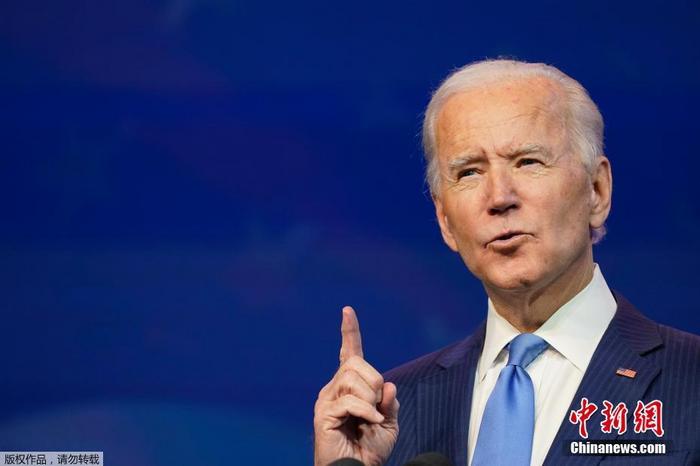China News Service, April 30 (Xinhua) According to a comprehensive report, recently, as Russia cut off natural gas supplies to Bulgaria and Poland, U.S. President Biden recently emphasized that the United States has accelerated to help Europe fill the gap in natural gas supply.
However, foreign media pointed out that the US move could not fill the vacancy of European natural gas.
On the other hand, Germany stated that it does not oppose the EU’s imposition of an oil embargo on Russia. Foreign media pointed out that this may pave the way for the EU to implement an embargo.
U.S. claims to increase natural gas supply
Foreign media: The US cannot fill the vacancy
On the 28th local time, US President Biden said in a speech, "We will not allow Russia to evade sanctions by intimidation or extortion. We will never allow them to use oil and gas to avoid the consequences of launching aggression."
Data map: US President Biden.
U.S. Secretary of State Blinken said the U.S. has accelerated shipments of LNG to Europe "to help fill any gaps", including those that could be caused by Russia's attempts to use the gas as a "extortion tool".
Qatar's Doha News reported that the United States approved the supply of liquefied natural gas from Qatar's state-owned Qatar Energy company in Texas to European countries that do not have free trade agreements with the United States.
However, the report noted that the approved LNG project will not immediately solve Europe's gas problems "as the plant is expected to produce the first batch of LNG in 2024".
In addition, Reuters analysis pointed out that in the context of tight global natural gas supply, Europe is unlikely to completely get rid of its dependence on Russian natural gas in the short term; although the United States has expressed its willingness to provide Europe with liquefied natural gas, it cannot fill the scarcity, and Europe does not have enough industry The facility converts natural gas from a liquid to a gaseous state.
Germany does not oppose EU oil embargo on Russia
The embargo on Russian oil is on the line?
A few days ago, German Economy Minister Habeck said that he would not oppose the EU's imposition of an oil embargo on Russia, but he was skeptical that the oil ban would have the desired effect.
The Wall Street Journal quoted German government officials as saying that Germany is now ready to stop buying Russian oil, clearing the way for the European Union's decision to ban oil imports from Russia.
Two German government officials said that Germany's representative to the European Union on the 27th no longer opposed the EU's comprehensive oil embargo against Russia, provided that Germany has enough time to ensure the supply of other alternative energy sources.
Data map: An oil field in the Siberia region of Russia.
The shift in Germany's stance increases the likelihood that EU countries will agree to a phased deal on a Russian oil embargo, with a decision as early as next week, diplomats and officials said.
However, negotiations are still ongoing as to how quickly the EU will stop buying Russian oil, and whether it will also adopt measures such as price caps or tariffs.
The United States urged European allies to avoid measures that could lead to a prolonged rise in oil prices.
The European debate on embargoing Russian oil has reportedly taken a decisive turn in recent days, as Germany and some other countries have taken practical steps to replace Russia with other suppliers.
However, diplomats said some members, including Hungary, Italy, Austria and Greece, remained cautious about the economic impact of the oil embargo.
Within the EU, approval of an oil embargo requires the unanimous consent of all 27 member states.
Bloomberg reported that companies in countries including Italy and Hungary are quietly moving to comply with Putin’s decree that gas transactions must be settled in rubles.
The Hungarian government has confirmed that it will pay Gazprom in euros, which will convert it into rubles on its own.

